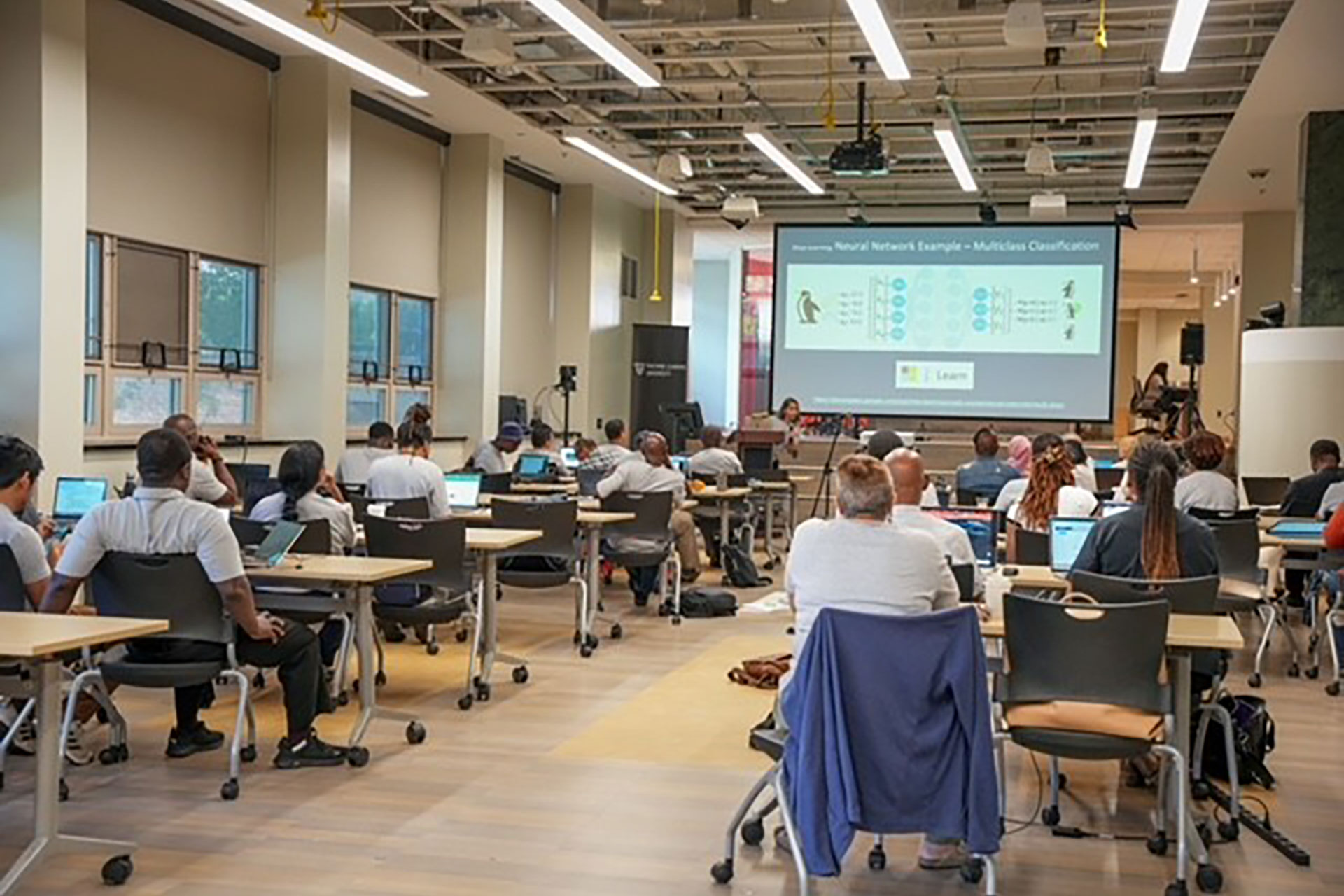In a significant move to advance artificial intelligence (AI) education, Morgan State University has announced a collaboration with Amazon's Machine Learning University Educators Consortium and Transformation Alliance. This partnership aims to embed AI and machine learning into the university's curricula, equipping students with the necessary skills to thrive in these burgeoning fields.
Preparing Students for the Future
This initiative is not just about updating course content; it represents a strategic effort to create comprehensive educational pathways in AI at Historically Black Colleges and Universities (HBCUs). The collaboration underscores the importance of inclusivity in tech education, ensuring that students from diverse backgrounds have access to cutting-edge knowledge and opportunities.
Comprehensive Faculty Training
Key to this initiative is the professional development of faculty and administrators. By equipping educators with the latest tools and methodologies in AI, the program seeks to foster an environment where technological innovation and academic excellence go hand in hand. This approach is crucial in maintaining the integrity and relevance of the curriculum as the field of AI rapidly evolves.
"By partnering with Amazon, we are not only enhancing our curriculum but also ensuring that our faculty are at the forefront of AI education," said a spokesperson from Morgan State University.
Broader Societal Impacts
The implications of this collaboration extend beyond the university's walls. As AI continues to permeate various sectors, there is a pressing need for a workforce that is both skilled and diverse. By focusing on HBCUs, the initiative seeks to address the underrepresentation of minority groups in tech industries, thereby promoting equity and diversity.
However, this endeavor also raises critical questions about the ethical deployment of AI technologies. As universities increasingly integrate AI into their programs, they must also instill a strong ethical framework to guide students in responsible innovation. This balance between technological advancement and ethical responsibility will be crucial in shaping the future landscape of AI.
Originally published at https://www.morgan.edu/news/morgan-collaborates-with-amazon-machine-learning-university
ResearchWize Editorial Insight
Morgan State University's partnership with Amazon to enhance AI education is a game-changer for students and researchers. This collaboration is more than just a curriculum update; it's a strategic push to embed AI deeply into the educational fabric of Historically Black Colleges and Universities (HBCUs). By doing so, it addresses a critical gap in tech education: inclusivity and diversity.
For students, this means access to cutting-edge AI knowledge and skills, positioning them favorably in a tech-driven job market. For researchers, it opens up new avenues for exploring AI's societal impacts, especially in terms of equity and representation. The initiative also highlights the importance of equipping faculty with the latest AI tools, ensuring that educators remain at the forefront of technological advancements.
Yet, there are broader implications. As AI becomes ubiquitous, the ethical deployment of these technologies becomes paramount. How can universities balance technological innovation with ethical responsibility? What role will HBCUs play in shaping a diverse and ethically grounded AI workforce?
This partnership could set a precedent, potentially influencing other institutions to follow suit. The long-term effects on the tech industry’s diversity and ethical standards could be profound. Are we witnessing the beginning of a more inclusive AI era?
Looking Ahead
1. AI Education Must Be Dynamic
AI is a moving target. Today's cutting-edge tech is tomorrow's legacy system. Universities must adopt a living curriculum that evolves in real-time with industry advancements. Static syllabi are relics of the past. The question is: Can academic institutions pivot quickly enough to keep pace with AI's relentless evolution?
2. Integrate Ethics Deeply and Early
The ethical implications of AI are profound and pervasive. Institutions must bake ethics into the core of AI education from day one. This isn't just an academic exercise; it's a societal imperative. Will graduates be prepared to navigate the moral minefields of AI deployment, or will they blindly follow technological determinism?
3. Cross-Disciplinary Learning is Non-Negotiable
AI doesn't exist in a vacuum. Its applications span healthcare, finance, law, and beyond. Education must reflect this cross-disciplinary reality. Are universities ready to dismantle silos and foster interdisciplinary collaborations, or will they cling to outdated departmental divides?
4. Regulators: A Step Ahead, Not Behind
As AI education ramps up, regulatory bodies must also accelerate their understanding and oversight. Lagging regulators could lead to unchecked innovation with catastrophic consequences. What happens if regulators fall behind? The stakes are too high for complacency.
5. Inclusive Innovation is Key
Morgan State's partnership with Amazon highlights a crucial point: Diversity in AI isn't just about representation; it's about innovation. Diverse teams produce better, more comprehensive solutions. But will other institutions follow suit to ensure that AI's future is as inclusive as it is innovative?
6. Prepare for the Unpredictable
As we look ahead, the landscape of AI education must be as dynamic and multifaceted as AI itself. The institutions that can keep pace will be the ones shaping the future, rather than being shaped by it.
Originally reported by https://www.morgan.edu/news/morgan-collaborates-with-amazon-machine-learning-university.
Related Articles
- A podium finish and Teamwork Award are the latest wins for App State’s student-led solar vehicle team
- Bringing AI into the classroom
- The Best Mental Health Apps for Meditation, Therapy, Better Sleep, & More
📌 Take the Next Step with ResearchWize
Want to supercharge your studying with AI? Install the ResearchWize browser extension today and unlock powerful tools for summaries, citations, and research organization.
Not sure yet? Learn more about how ResearchWize helps students succeed.

